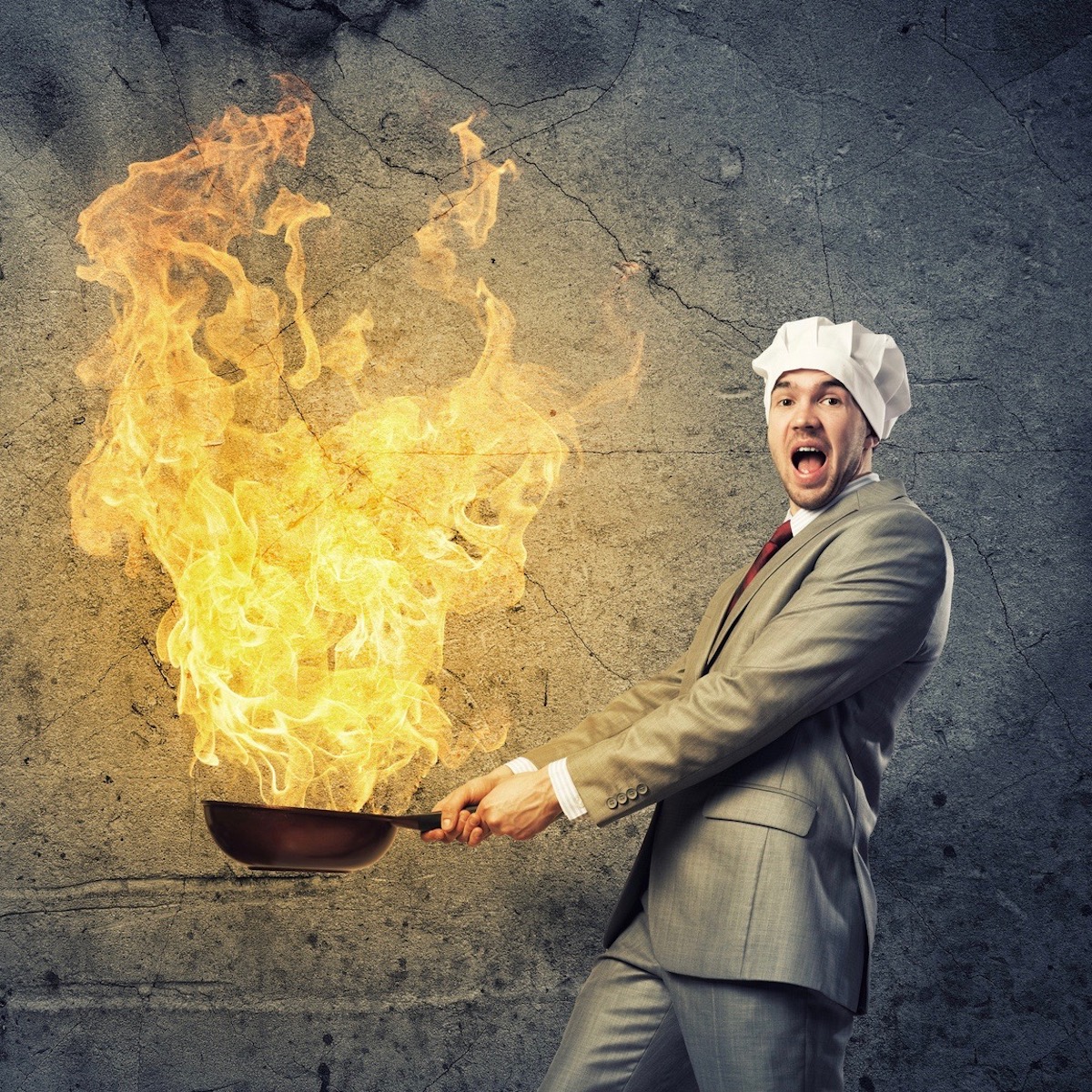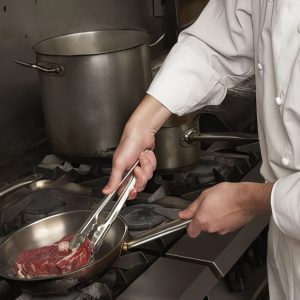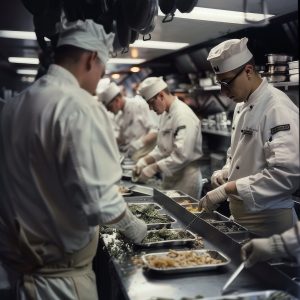The Effect Celebrity Chefs Are Having On the Industry
Television often glorifies the culinary field, presenting it in a way that emphasizes excitement, creativity, and drama while sometimes glossing over the more challenging aspects of the profession. Here’s how:
1. Focus on Glamour and Creativity
- Competition Shows: Programs like Top Chef and MasterChef showcase talented chefs competing in high-pressure environments, where they create stunning dishes under tight deadlines. These shows emphasize creativity, presentation, and the art of cooking, often portraying the kitchen as a place of innovation and excitement.
- Celebrity Chefs: Television has turned chefs like Gordon Ramsay, Guy Fieri, and Rachael Ray into celebrities, showcasing their skills, personalities, and successful careers. This can create the impression that culinary success is attainable and glamorous.
2. Underrepresentation of Hardships
- Long Hours and Physical Demands: The reality of long working hours, physical strain, and the often repetitive nature of kitchen work is rarely shown in detail. The grueling work conditions, especially in restaurant kitchens, are often overshadowed by the excitement of cooking competitions or the allure of fine dining.
- Stress and Pressure: While some shows highlight the kitchen environment’s stressful nature, the emphasis is often on the drama rather than the long-term mental and emotional toll that a career in the culinary field can take.
3. Simplification of the Culinary Journey
- Success Stories: Many shows highlight the success stories of chefs who have made it big, often simplifying the path to success. The struggles, failures, and years of hard work that many chefs go through are sometimes minimized, leading viewers to believe that culinary fame and success are more readily attainable than they are.
Television’s portrayal of the culinary field tends to focus on the excitement, creativity, and success of the profession, often glorifying it while downplaying the challenges and hardships that come with a career in the culinary arts. While this can inspire many to pursue culinary careers, it’s essential to recognize that the reality of working in a kitchen is often much tougher than what is portrayed on screen.
What Are We Not Seeing in TV Land?
When watching culinary shows, viewers often miss several critical aspects of the culinary profession that are not as glamorous or entertaining but are crucial to the reality of working in the industry. Here are some of the key elements that are typically left out:
1. Long Hours and Exhaustion
- Reality: Chefs and kitchen staff often work long shifts, sometimes exceeding 12 hours a day, with few breaks. The work can be physically and mentally exhausting, leading to burnout.
- What’s Shown: Shows may briefly touch on the intensity of kitchen work, but they rarely depict the cumulative toll of long hours over weeks, months, or years.
2. Repetitive Tasks
- Reality: Much kitchen work involves repetitive tasks like chopping vegetables, cleaning, and repeatedly preparing the same dishes. This routine work is essential but monotonous.
- What’s Shown: Television focuses on the creative and exciting aspects of cooking, often skipping over the less glamorous, repetitive tasks that are a significant part of daily kitchen life.
3. Stress and Pressure
- Reality: The stress of maintaining high standards, meeting deadlines, and managing customer expectations is intense. This can lead to a high-pressure environment where tempers flare, and mistakes can be costly.
- What’s Shown: While some shows highlight the pressure of cooking competitions or running a kitchen, they often frame it as part of the drama rather than exploring its long-term impact on mental health.
4. Physical Strain
- Reality: Standing for long hours, working in hot kitchens, and lifting heavy pots and pans can lead to physical strain and injuries. Chefs often suffer from back pain, burns, and other work-related injuries.
- What’s Shown: The job’s physical demands are rarely fully portrayed. The focus tends to be on the end product—the beautifully plated dish—rather than the physical toll it takes to get there.
5. Financial Realities
- Reality: Many culinary professionals, especially those starting, earn modest wages. The financial challenges of running a restaurant, including slim profit margins and the risk of failure, are significant.
- What’s Shown: Television often glamorizes the success of celebrity chefs or restaurants without delving into the financial hardships that many in the industry face, including the risk of restaurant closures.
6. Hierarchies and Tough Work Environment
- Reality: Kitchens often operate under strict hierarchies and have a strong culture of discipline. The environment can be tough, with demanding chefs and intense pressure to perform.
- What’s Shown: While some shows depict the hierarchical structure of kitchens, they often do so in a dramatized way, emphasizing conflict for entertainment rather than showing the daily realities of navigating these dynamics.
7. Emotional Toll
- Reality: The combination of stress, long hours, and the pressure to constantly perform can lead to significant emotional strain. Mental health issues like anxiety and depression are not uncommon in the culinary field.
- What’s Shown: Emotional challenges are sometimes touched upon but are often overshadowed by the excitement of competition or the celebration of culinary successes.
8. Consistency and Perfection
- Reality: In professional kitchens, chefs must repeatedly produce the same dish to the same high standard, which requires precision and consistency. Mistakes can be costly and damage a restaurant’s reputation.
- What’s Shown: Television highlights the creative process and the final product but often skips over the rigorous standards and the pressure to maintain consistency daily.
These omissions can create a skewed perception of what it’s like to work in the culinary field, making it appear more glamorous and less challenging than it truly is.












